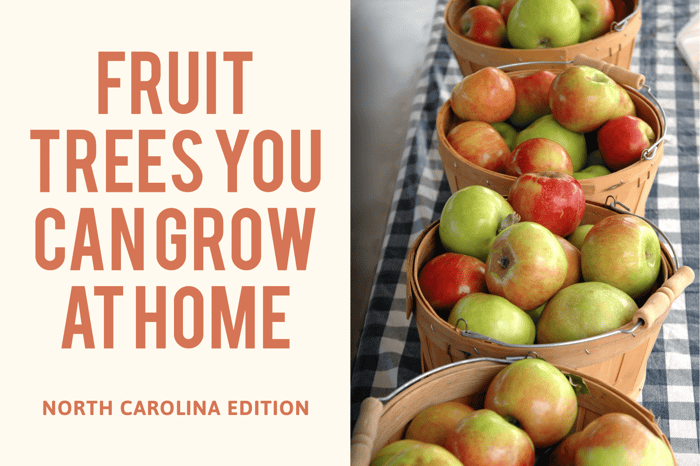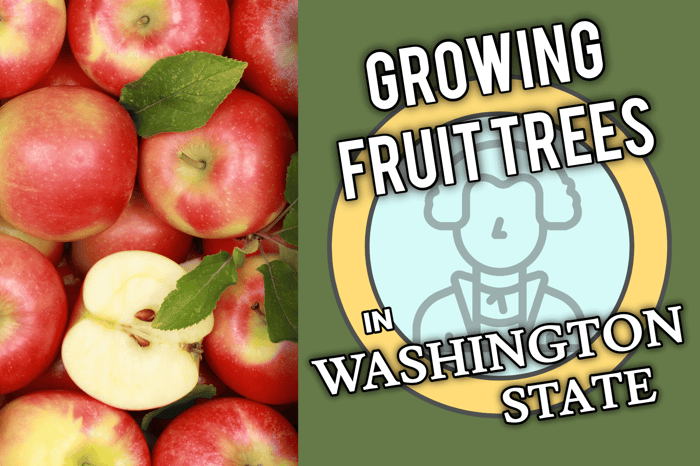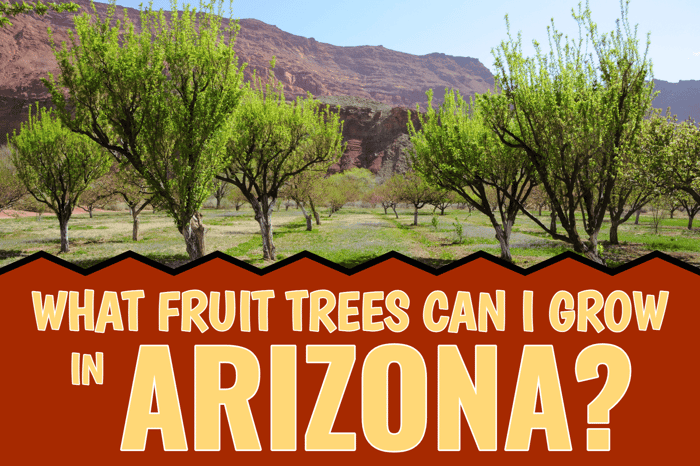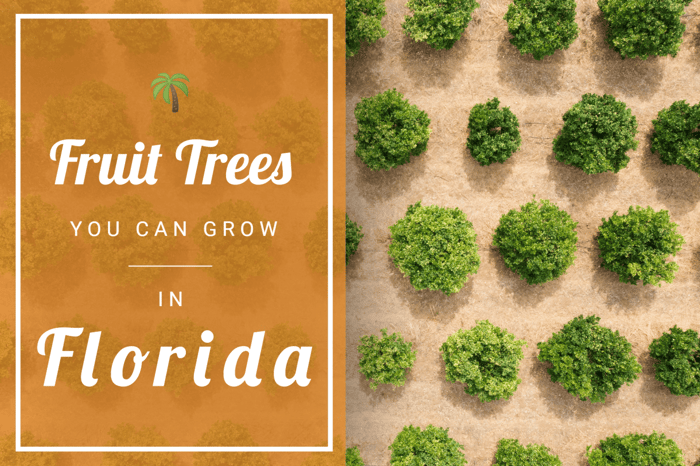Table of Contents
North Carolina: Fruit Tree Growing Guide
North Carolina growers have many options when choosing fruit trees for the home orchard. The warm summers and cool winters allow for excellent crops of apples, pears, persimmons, plums & more. The humidity on the other hand means that variety selection and tree maintenance will be key to avoiding pest and disease issues.
Citrus Trees
All Citrus (Indoor/Outdoor)
Citrus trees are tropical plants that love the heat and humidity of the North Carolina summers and will thrive outdoors during those months. That said, Citrus trees are only cold hardy to about 25°-30°F depending on the variety so they need to be protected during the colder months and brought indoors. Thankfully citrus trees in general are one of the few types of trees that do exceedingly well in containers. Lemons and Limes are the tougher of the citrus family making them a great choice for an indoor/outdoor tree and will produce nearly year-round under adequate conditions.
Persimmon Trees
Fuyu (200hr), Chocolate (200hr), Coffeecake (200hr), Hachiya (200hr)
Growing persimmon trees in North Carolina is as easy as shooting fish in a barrel. There are no known pests or diseases that plague the humble persimmon tree. They are very adaptable to most soil conditions and can be grown across the state. One thing to keep in mind when choosing a variety only the Fuyu and Hachiya are self-fruitful. Chocolate & Coffeecake Persimmon should be grown together to pollinate each other. Other than that, these lovely trees require relatively low amounts of water and soil amendments. Annual pruning will be good for the tree especially if you want to keep the tree from growing too tall. Persimmon trees are typically sold and shipped in the fall/ winter as dormant planting gives the tree time to establish roots before the growing season starts.
Apple Trees
Gala (500hr), Golden Delicious (700hr), Fuji (500hr)
Apple trees are the tried and true variety for the majority of states. They are cold hardy, heat tolerant to an extent(more so with Tree Paint) but do require a fair amount of maintenance for a good crop. Pruning in the winter (Anything dead, damaged, or diseased should go), a heavy top-dressing of compost and mulch in the spring, then thinning the fruit as the season progresses is the recipe for a fruitful tree with good-sized apples. A healthy watering regimen is also important, especially with the hot summers. The humidity can be an issue for a lot of fruiting trees so spraying with an organic fungicide will certainly help but is not required. Keeping on top of disease will be important if you want a long-lived tree.
Pear/Asian Pear Trees
Hosui (300-400hr), 20th Century (300-400hr), Shinseiki (250-300hr)
Growing Pear Trees in North Carolina is a bit more difficult than apples. Pear Trees are particularly susceptible to disease & pests damage. Pear trees also tend to grow more upright so like apples, a fair amount of maintenance and pruning is necessary for a good yield and accessible fruit.
Apricot/Plum Trees
Blenheim Apricot (400hr), Santa Rosa Plum (300hr)
Apricots and plums grow well but live short lives in the humid climate of North Carolina. You will need to avoid early blooming cultivars as the late frost and spring rain can do a lot of damage to the emerging blossoms. While many varieties are self-fruitful, planting two cultivars will dramatically increase your fruit production. Spraying your tree regularly during the growing season with a multipurpose fungicide/insecticide will be vital to the longevity of your tree.
Peach/Nectarine Trees
Elberta Yellow Peach (600hr), Suncrest Yellow Peach (500hr)/ Fantasia Yellow Nectarine (500hr), Goldmine White Nectarine (400hr)
The warm North Carolina summer provides adequate heat to produce lots of sweet juicy fruit. Peaches and nectarines are similar to apricots and plums in that they will grow well but they also live short-lived lives due to humidity-induced pest/disease pressure. They require the same regimen of spraying and maintenance to produce a good crop. Pruning your tree to an open center will also help to allow more airflow through your tree and reduce the chance of pest/fungal issues. Consider varieties with slightly longer chill hour requirements to ensure that they don't bloom too early and have their blossoms ravaged by late frosts or rain.
Fig Trees
Brown Turkey (100hr), Black Mission (100hr), Kadota (100hr)
Growing Fig Trees in North Carolina is relatively easy. These trees require minimal maintenance, tend to bear fruit very early, and are mostly self-pollinating. Expect some die back in the winter if you are in West/Central NC. You'll want to prune the damaged branches in the spring and these resilient/vigorous trees should come back. A topdressing of compost and mulch in the spring will feed the tree and keep weeds down. Fig trees are also excellent container trees that can be brought indoors if you ever see temperatures approaching 5°F.
Pomegranate Trees
Wonderful (150hr), Desertnyi (200hr)
Growing Pomegranates in North Carolina is easier than you might think. Although these plants prefer warm, arid regions, some parts of NC provide just enough heat for a good crop. The coastal grower should be able to grow directly in the ground with minimal frost damage in the winter. Central state growers will want to grow in a container and protect your tree from the sub 10°F temperatures that will start to kill off the tree. This beautiful shrub-like tree needs minimal maintenance and makes for excellent living walls that produce delicious and nutritious fruit.
Protect your fruit trees from the hot summer sun and winter cold with Plant Guard tree paint and foliar spray.
Source: https://content.ces.ncsu.edu/extension-gardener-handbook




